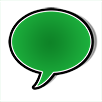 There are many online dictionary sites. Some that come up near the top of search results include Dictionary.com http://www.dictionary.com, Merriam-Webster http://www.merriam-webster.com, The Free Dictionary http://www.thefreedictionary.com, Wiktionary http://en.wiktionary.com, Your Dictionary http://www.yourdictionary.com,
There are many online dictionary sites. Some that come up near the top of search results include Dictionary.com http://www.dictionary.com, Merriam-Webster http://www.merriam-webster.com, The Free Dictionary http://www.thefreedictionary.com, Wiktionary http://en.wiktionary.com, Your Dictionary http://www.yourdictionary.com,
Definitions.net http://www.definitions.net.
One that is not so easy to find is Collins http://www.collinsdictionary.com.
The popular dictionaries are really wannabe encyclopedias. They have detailed explanations of each word. Rather than defining the term in succinct form, they attempt to be general and all-inclusive. For example, searching the noun form of the word “blog”, these dictionaries can use 20 – 40 or more words to define blog. In addition” their definitions have lengthy “or” and “and” clauses so that they cover all the bases and then some.
Although most have a sample sentence, the ones they offer don’t have any context. For example, Merriam Webster uses the sentences “She writes a blog about travel. I enjoy reading her blog.” From this I know “you can read a blog” and “a blog has a subject.” Collins dictionary gives “When Barbieux started his blog, his aspirations were small; he simply hoped to communicate with a few people.” This lets me understand it better, it gives me an example of the why and who that Merriam-Webster’s example doesn’t reveal.
Collins Dictionary has many other useful features such as definitions in both British English and American English. Along with the conventional definitions, parts of speech and derived forms of word, this dictionary has audio pronunciations of the different forms of English. For the language nerd, it provides a graph of word-use frequency over time.
There are full dictionaries of Portuguese, German, Italian, and Chinese. It appears to be missing a dictionary of French, Arabic, Hebrew and other world languages.
One unique feature that it has is a Learner’s English section that include each definition with a less complicated sentence using the word.
Frequently, when I search for words in a search engine, I add “site:collinsdictionary.com” to limit my search to this source.
Check http://www.collinsdictionary.com out. I believe you will be appreciate it as much as I do.
[Edit 2018-03-02] I discovered that my comment about missing dictionaries is not correct. Collins contains dictionaries for Hindi, French, Spanish, English, German, Italian and Chinese. However, I have not found Arabic and Hebrew dictionaries.
An additional feature is access to audio pronunciations for dozens of languages.


 There are many online dictionary sites. Some that come up near the top of search results include Dictionary.com
There are many online dictionary sites. Some that come up near the top of search results include Dictionary.com